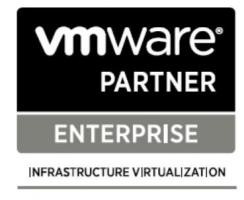
What is virtualization?
Virtualization is the act of migrating physical systems into a virtual environment. In other words, it is the creation of a virtual version of a device or resource; anything from a server to an operating system. By providing a virtual view of computing resources, this allows you to turn one server into a host for a group of servers that all share the same resources.
How is it different from other systems?
With virtualization, you can instantly access nearly limitless computing resources which allow for faster and broader business capabilities. It also gets rid of haphazard IT rooms, cables, and bulky hardware; reducing your overall IT overhead as well as management costs.
While many look at virtualization as the cloud, in reality the cloud is just a part of virtualization. The most important function of virtualization is the capability of running multiple operating systems and applications on a single computer or server. This means increased productivity achieved by fewer servers. Virtualization can usually improve overall application performance due to technology that can balance resources, and provide only what the user needs.
When to virtualize?
Virtualization can be a solution for many businesses, but not for all. The key is to know exactly when to virtualize. Here are four situations where a business could virtualize systems:
[list style=”tick”][li]Virtualize if you rely on technology – Companies that rely on technology often use several servers and technology from hardware like laptops and networks. Basically, if your company needs technology to operate, virtualization can help you reduce the overall operation costs.[/li][li]Virtualize if your company exceeds 20 employees – Many tech experts agree that there is no need for virtualization if you have a business with less than 10-20 employees. With that number, traditional servers are usually more than enough to cater to your needs.[/li][li]Virtualize if you can cover the costs – While virtualization is meant to reduce costs, like any modern technology it requires an initial investment. The cost of virtualization can be high for smaller businesses to implement, however you do have an option of working with an IT partner like us. We can help you realize cost-savings or even a Return On Investment (ROI). For companies with servers in place, virtualization can be as simple as installing a free program.[/li][li]Virtualize if you want space – Certain business operators throw away a big chunk of their money on an extra room to house large server racks, wires or even IT personnel to maintain them. The issue here is the cost of maintenance, as well as limited office space. In this situation, virtualization can help make better use of space while reducing hardware costs.[/li][/list]
There are several reasons as to why many businesses look into virtualization. Like any type of technology, it’s a tradeoff between practicality and ROI. If you think you’re ready to move your systems to a virtual world or are looking to learn more about virtualization solutions, contact us today. We are a certified VMware Enterprise Partner.








